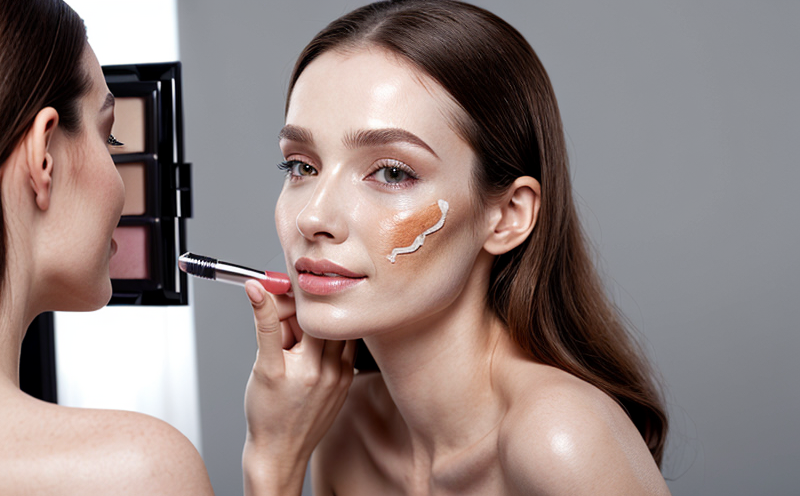Clinical Moisturization Testing in Lip Balms
Understanding and ensuring the moisturizing efficacy of lip balms is crucial for product development, quality control, and customer satisfaction. This service focuses on evaluating the effectiveness of lip balm formulations through clinical testing to meet regulatory standards and ensure consumer safety.
In this context, dermatological testing plays a vital role in assessing how lip balms interact with human skin. The primary objective is to measure the moisture content changes over time when applying the product to the lips. This process helps identify which ingredients are most effective at providing long-lasting hydration and protection against dryness.
The clinical aspect involves monitoring participants' reactions and the performance of the lip balm in real-world conditions. Participants typically use the lip balms regularly under controlled environments for a specified period, after which their skin is analyzed for moisture levels using non-invasive techniques such as corneometry or capacitance measurement instruments.
This testing aligns with international standards like ISO 15194, which provides guidelines on the determination of water content in lip products. By adhering to these standards, laboratories can ensure that their methods are consistent and reliable across different brands and formulations.
For R&D engineers and quality managers involved in cosmetic product development, understanding the moisture retention properties of lip balms is essential for innovation and safety. This testing helps in refining formulas, optimizing ingredient selection, and ensuring compliance with regulatory requirements. Compliance officers can benefit from this service by verifying that their products meet relevant standards.
Through clinical moisturization testing, laboratories provide valuable insights into the performance characteristics of lip balm formulations, which are critical for maintaining skin health while also enhancing the user experience.
Benefits
- Evaluation of long-term moisture retention properties
- Prediction of consumer satisfaction based on clinical trial results
- Enhanced product safety through adherence to international standards (ISO 15194)
- Optimization of ingredient selection for improved efficacy and user experience
- Achievement of regulatory compliance by meeting specified industry benchmarks
- Identification of potential issues early in the development cycle, reducing costs and time-to-market
Customer Impact and Satisfaction
- Improved skin hydration leading to enhanced customer satisfaction
- Increase in repeat purchases due to perceived value and effectiveness
- Positive feedback from users about the product's performance, especially during colder seasons or prolonged exposure to environmental factors
- Better reputation for the brand as a leader in skincare innovation
- Increased loyalty among customers who trust that their products undergo rigorous testing before release
Environmental and Sustainability Contributions
Incorporating sustainable practices into clinical moisturization testing can lead to significant environmental benefits. By optimizing ingredient selection, laboratories can reduce waste associated with ineffective or harmful compounds. This approach not only minimizes the ecological footprint but also promotes responsible resource use.
The use of non-invasive techniques and efficient sample preparation methods ensures that resources are used optimally without compromising on accuracy or reliability. Additionally, by ensuring compliance with strict standards, laboratories contribute to reducing the risk of recalls and associated environmental impacts.
Furthermore, by providing robust data on product efficacy and safety, this service supports brands in making informed decisions about their sustainability strategies. This includes choosing eco-friendly packaging materials and sourcing ingredients from sustainable sources, which collectively enhance overall environmental responsibility.





